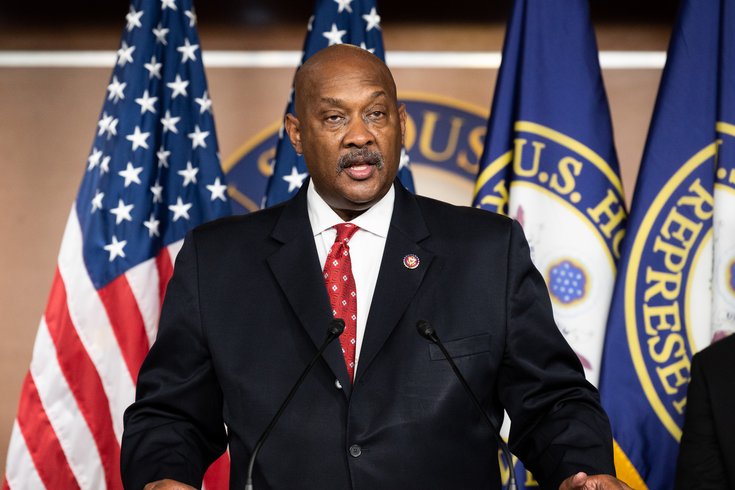
May 23, 2024
 Michael Brochstein/Sipa USA
Michael Brochstein/Sipa USA
U.S. Rep. Dwight Evans, of Philadelphia, says he had a 'minor' stroke and is recovering at an inpatient rehab facility. The Democrat says he anticipates voting in Washington in about six weeks.
U.S. Rep. Dwight Evans said he had a "minor stroke" earlier this week and is recovering at an inpatient rehabilitation facility.
"It was minor enough that I didn't even realize what had happened for a few days," Evans said in a statement. "The main impact seems to be some difficulty with one leg, which will probably impact my walking for some time, but not my long-term ability to serve the people of Philadelphia."
MORE: With his arrest warrant withdrawn, state Rep. Kevin Boyle returns to Pa. House
Evans — who was elected to Congress in 2016 and represents Pennsylvania's Third Congressional District, which includes much of Philadelphia — said he expects to remain at the rehab facility for another week before advancing to outpatient therapy. He said he hopes to be back voting in Washington in about six weeks and asked for privacy in the meantime.
"(I) have been taking time to rest and recover and to decide how to go public in a way that would help to educate people," Evans said. "In the coming months, I want to help educate people and remove the stigma that sometimes accompanies strokes – many people can recover and continue on with their life and their work."
Pennsylvania Sen. John Fetterman had a stroke while on the campaign trail in 2022. The lingering effects were evident during a televised event held that fall, and he later said the stroke contributed to the clinical depression that prompted him to seek inpatient treatment shortly after taking office.
A stroke occurs when the blood supply to part of the brain becomes blocked, or when a blood vessel in the brain bursts. In either scenario, the stroke causes parts of the brain to become damaged or die, and can lead to lasting brain damage, long-term disability or death. Symptoms may include sudden confusion, trouble speaking, numbness or weakness, severe headache, trouble seeing, trouble walking or dizziness.
About 795,000 Americans have a stroke each year, and about 160,000 die from stroke-related causes, according to the National Institute of Neurological Disorders and Stroke.
There are two major types of strokes. Ischemic strokes, the most common type, occur when blood clots, plaque or other particles block the blood vessels to the brain. Hemorrhagic strokes happen when an artery in the brain leaks blood, which puts too much pressure on brain cells and damages them.
A transient ischemic attack, also called a "mini-stroke," differs from the major types and occurs when blood flow to the brain is blocked for a short time, usually no longer than five minutes.
Evans did not specify the type of stroke he suffered, but said he did not realize he had had a stroke until days later.
Some strokes are referred to as "silent strokes," because they may affect a small area of the brain that does not cause visible symptoms. Multiple silent strokes can still cause significant brain damage, and can increase the risk of having a major stroke.
Follow Franki & PhillyVoice on Twitter: @wordsbyfranki
| @thePhillyVoice
Like us on Facebook: PhillyVoice
Have a news tip? Let us know.